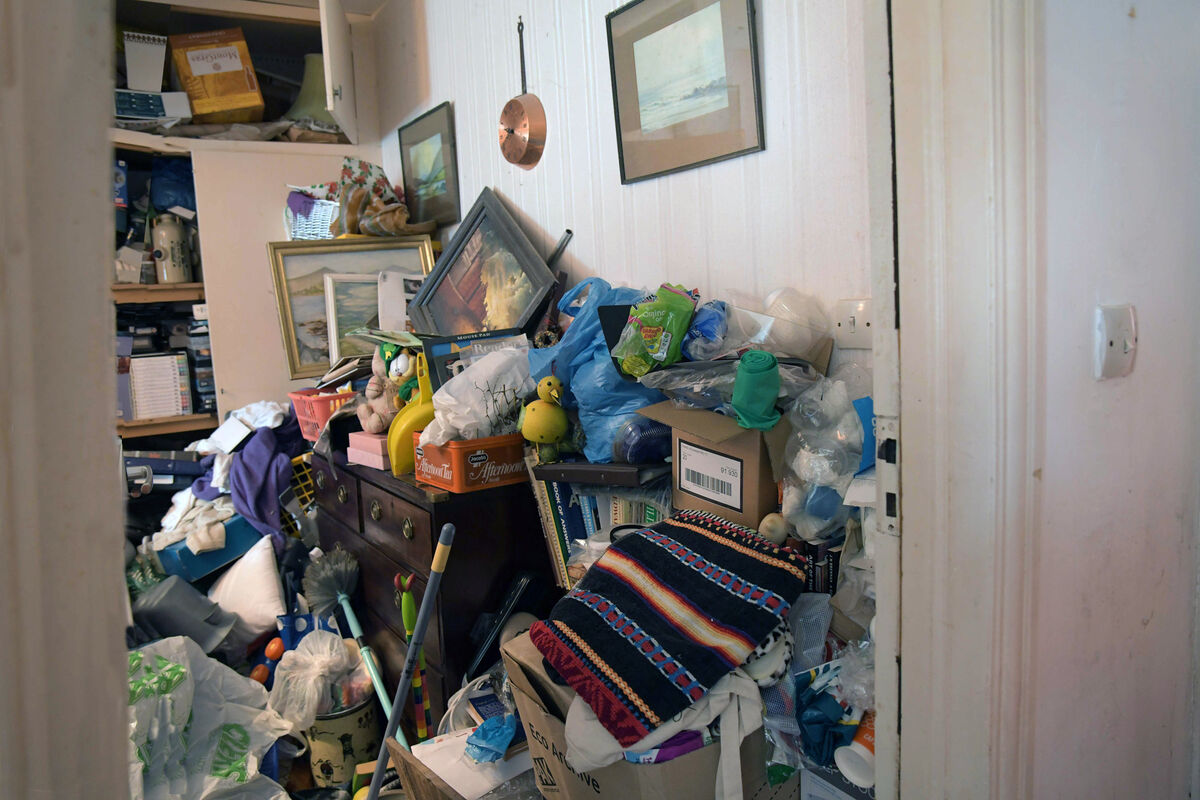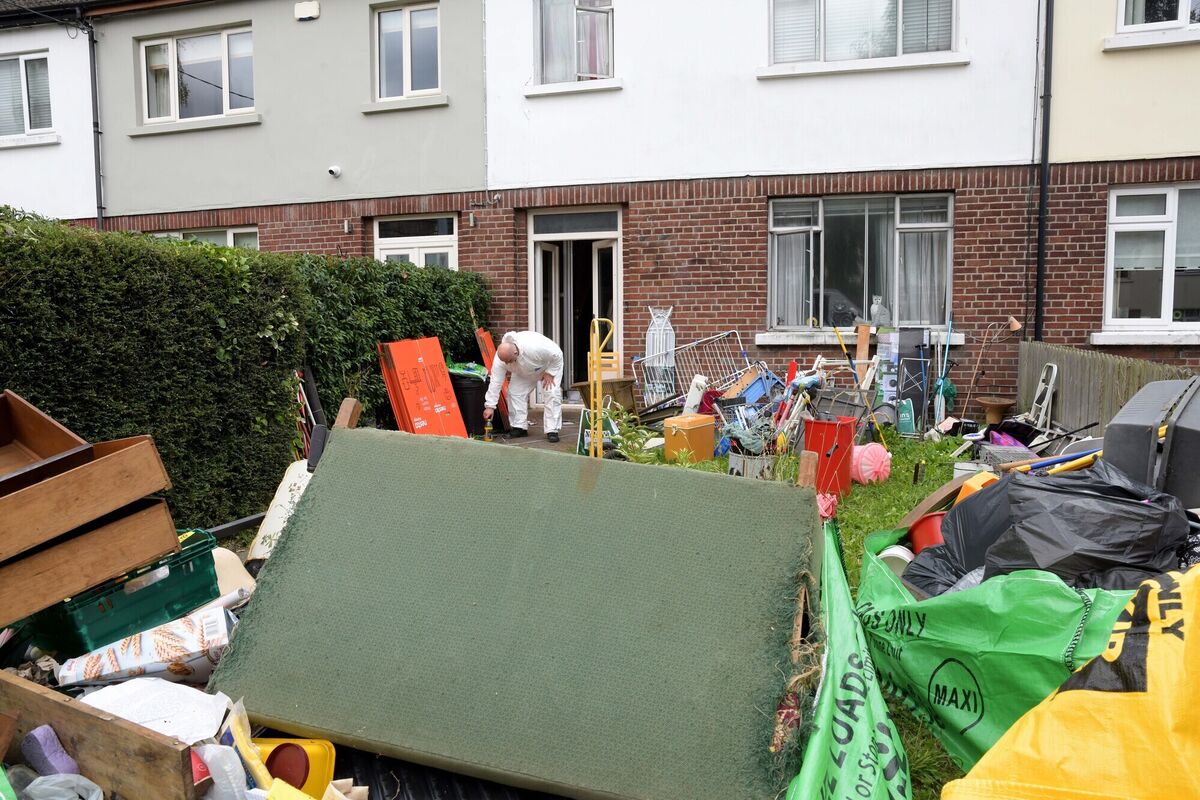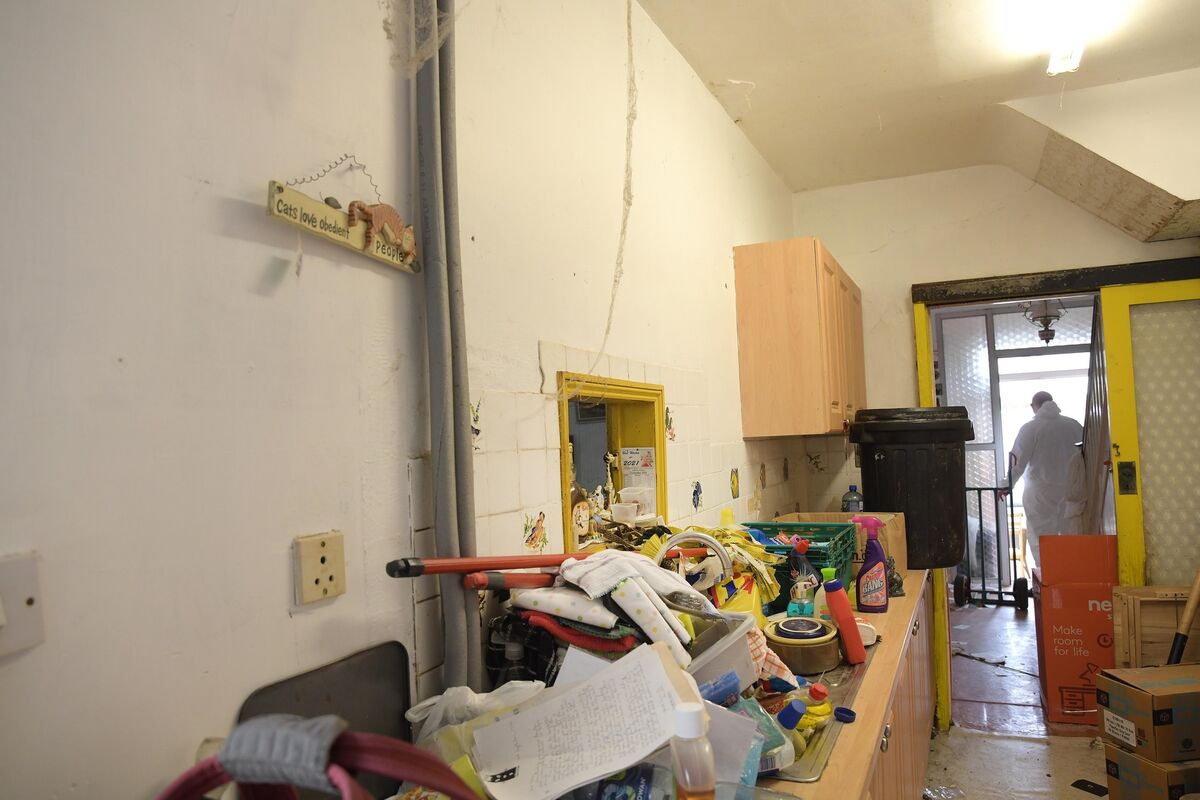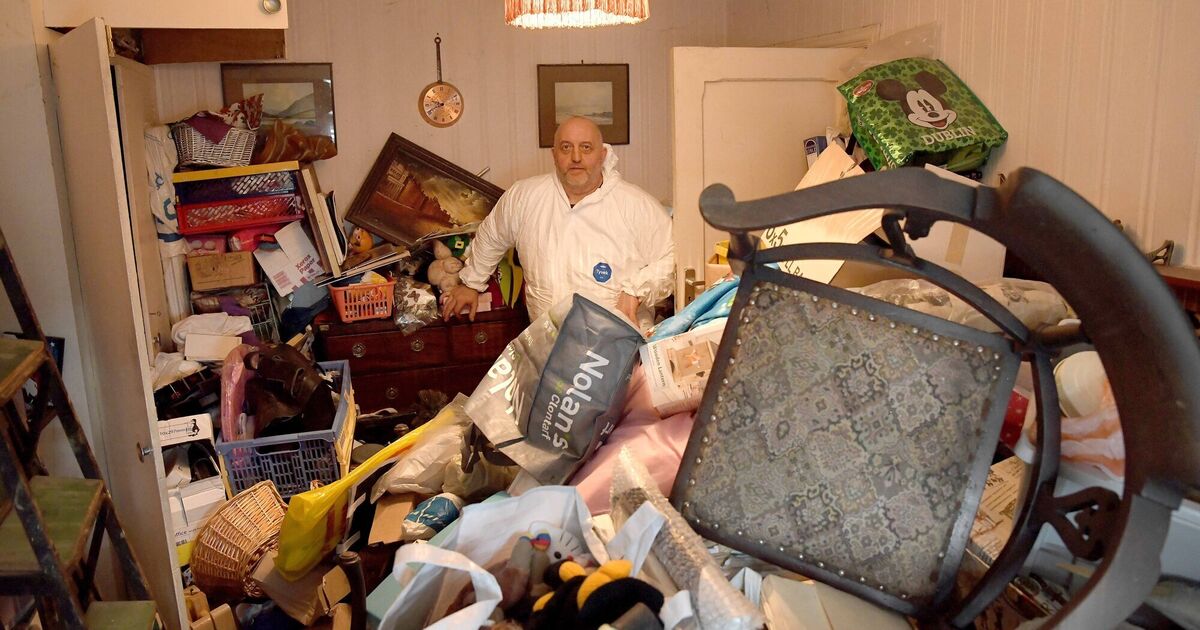For cleaner Mark Healy, who specialises in deep cleaning trauma scenes and tackling the homes of extreme hoarders, it was like many of the houses he visits – in complete disarray and piled high with rubbish.
However, beneath the squalor lay a poignant reminder of a life overshadowed by addiction. Mark counted 100 discarded empty vodka bottles that day. But the most grim discovery was a written warning from the woman’s employer. A nurse, she had been disciplined for drinking in the hospital where she worked.
Mark is unsure if the woman – a mother – eventually lost her job or died before a chance at redemption. He tries not to think about it or ask too many questions. On that occasion it was her family who reached out to him for assistance in cleaning the home after her death.
“I’m not sure how that woman survived so long drinking that much,” Mark tells the Irish Examiner. “All I know is that she drank herself to death.
A lot of these people have very good jobs. Some have kept the way they are living a secret for 20 or 30 years.
“A lot of the time it isn’t until there is a medical emergency or the person dies that their living conditions are revealed. They might have a drinking problem or have a fall and that’s when they get found out. It takes a long time to build up a hoarding situation.”
Understandably, Mark says he has had some very memorable jobs since setting up Phoenix Extreme Cleaning services in Dublin 10 years ago.
“One that sticks in my mind is a bathroom that had full nappies from the floor to the ceiling. It made me wonder, with all the things people hoard, why anyone would want to save nappies.”
He said that having to deal with hoarders directly is probably the most challenging aspect of his job.
 One of the bedrooms in a house clearance and clean-up by Mark. Photo: Moya Nolan
One of the bedrooms in a house clearance and clean-up by Mark. Photo: Moya Nolan
“One of the first requests I’ll get from a hoarder if they’re ringing me directly is to make sure I come in a van without writing or a company logo. They don’t want their neighbours to know that I’m coming which might explain why I drive a plain white van.”
Marks says that having a hoarder there when the clean-up is happening makes things a lot more difficult because they can make getting anything done virtually impossible. And he has had hoarders get angry with him in the past because they don’t like seeing him throwing their stuff out.
“I remember this one job that had been arranged by a relative of the home owner. We were clearing the house but she ended up taking the stuff we were throwing out back out of the van. She had been hoarding carrier bags and insisted she wanted to ‘check them all’ before we got rid of them for good.
“She ended up taking 1,000 bags into her back garden because she didn’t want us to get rid of them. That was probably one of the most bizarre jobs I have ever been on.”
Mark says the relative who arranged it all was the “most patient man in the world”, but that he did get frustrated with her towards the end as she had been making life so difficult for everyone.
“This woman had a really good job and was in a senior role in the company where she worked. She had all this going for her but sadly wasn’t able to control the hoarding situation.”
 Mark: ‘It takes a long time to build up a hoarding situation.’ Photo: Moya Nolan
Mark: ‘It takes a long time to build up a hoarding situation.’ Photo: Moya Nolan
While reality TV shows like Hoarders in the US and How Clean is Your House in the UK have made for entertaining viewing, Mark said the impact of hoarding can be devastating for families.
“There was one elderly couple whose kitchen table was so full they were no longer able to see each other across it at meal times. There was rubbish on the table that was stacked high to the ceiling. They were separated by this barricade of rubbish that over time had created this distance between them.”
Cleaning up after a violent crime has been committed or a person has taken their own life is not for the faint-hearted, and demands a certain amount of stoicism.
“Cleaning up the body fluids of a person after a murder or suicide is too much for the family to deal with. You need someone to do it who’s not emotionally attached. That’s why it isn’t a problem for me.
“Sometimes you do feel sorry for the families but you have to try and think about something else. Half the time I’m not even sure what happened to the person in the house. If you dwell on it too much you won’t be able to do the job.”
Mark is also called on to clean up drug dens.
 Mark: ‘Some have kept the way they are living a secret for 20 or 30 years.’ Photo: Moya Nolan
Mark: ‘Some have kept the way they are living a secret for 20 or 30 years.’ Photo: Moya Nolan
“In places where there is drug activity we will find needles everywhere from sofas to the kitchen cupboards. Drug addiction is a huge problem in Dublin at the moment.
“Getting pricked by one of the needles is something you have to be really mindful of. There is a huge risk of infection.”
But like all jobs, there are rewarding aspects, and Mark says the best is when people who are addicted to hoarding rubbish manage to break the cycle.
“The most rewarding part for me is when people are brought to tears after a job because you know you’ve changed lives. Some do stop the hoarding after that. It reminds you that what you are offering is a life-changing service.”

